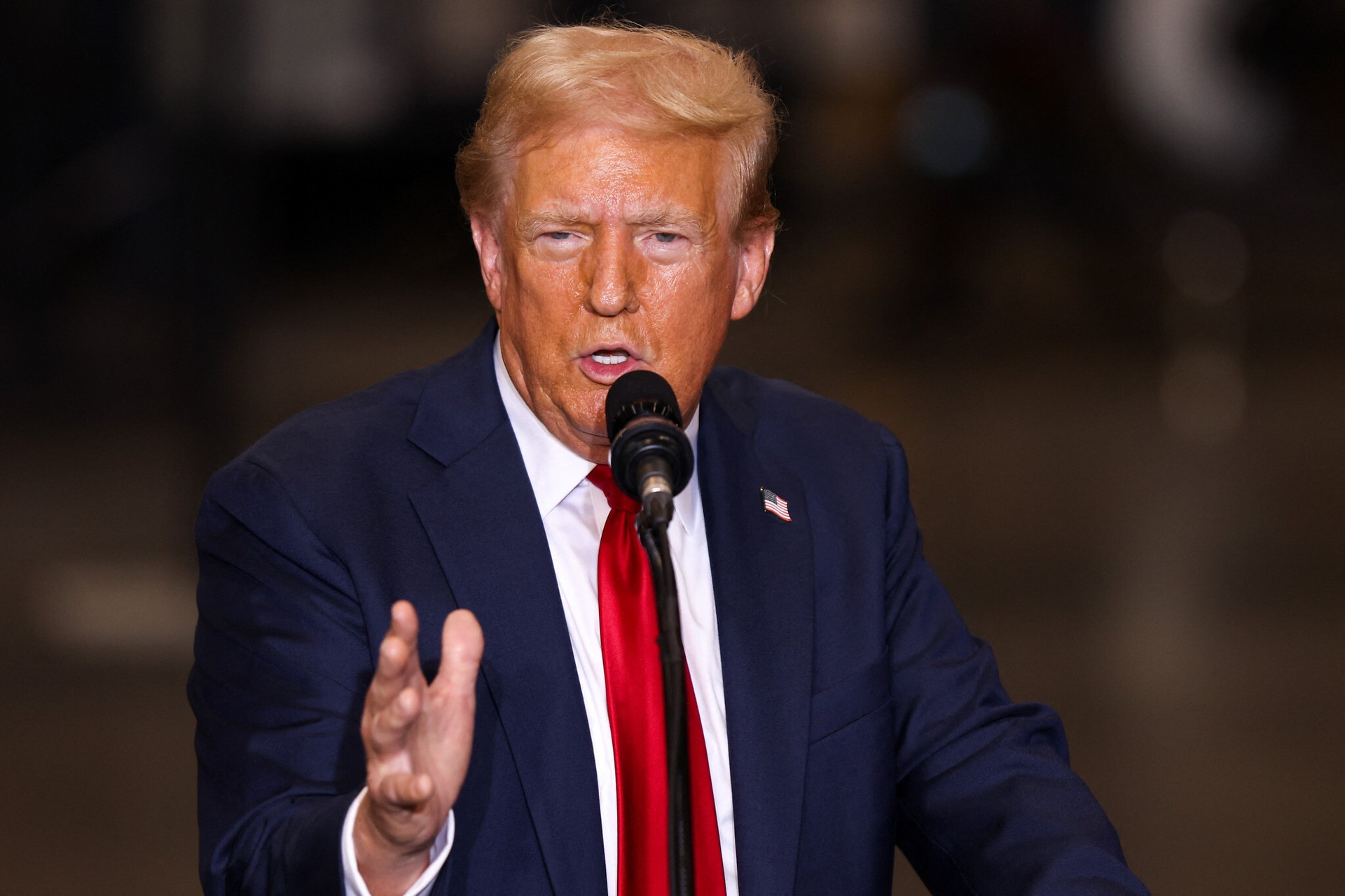
Robert F. Kennedy Jr., the independent candidate in the U.S. presidential election who previously supported the Republican ticket, revealed a conversation with Donald Trump regarding U.S. military presence in Syria.
In an interview with American journalist Tucker Carlson, Kennedy described a recent exchange with Trump aboard a plane, discussing U.S. military operations in the Middle East. According to Kennedy, the conversation shed light on Trump's concerns about troop deployments in the region, particularly along the Syria-Türkiyeborder.
“Just the other day, I was with President Trump on a plane, and we were talking about the Middle East,” Kennedy recalled. “He took a piece of paper and drew a map of the Middle East, showing all the countries in the region. Not many Americans can do that. He also wrote down the strength of the forces in each country.”
Kennedy continued, “He was particularly focused on the Syria-Türkiye border. He said, ‘We have 500 soldiers at the Syria-Türkiye border.’ Then he pointed to a bombed-out camp. He said, ‘There are 750,000 soldiers in Türkiye and 250,000 in Syria. If they clash, we’ll be caught in the middle.’ He asked his generals what would happen to those 500 soldiers, and they told him that, even though it wasn’t wanted, it was likely that the 500 would die. Trump said, ‘Get them out of there.’”
Kennedy, the son of Senator Robert F. Kennedy, who was assassinated in 1968, and nephew of President John F. Kennedy, initially ran as an independent candidate in the presidential race before withdrawing and endorsing Trump.
Trump's approach to Syria has long been a point of contention. In December 2018, he made a sudden decision to withdraw roughly 2,000 U.S. troops stationed in Syria, citing the defeat of Daesh. However, he later softened this stance, opting for a gradual reduction in troop numbers over time.
In October 2019, Trump again expressed frustration with the U.S. military presence in Syria, saying the U.S. had stayed longer than necessary. His plan to withdraw troops faced backlash from senior figures within his administration, including Brett McGurk, who had served as the U.S. Special Envoy for the Coalition to Defeat Daesh. McGurk resigned shortly after Trump's decision in 2018, citing disagreement with the pullout strategy.
In the years following, the U.S. policy in Syria evolved under the Biden administration, with Joe Biden appointing McGurk to a senior role in the National Security Council, focusing on the Middle East.